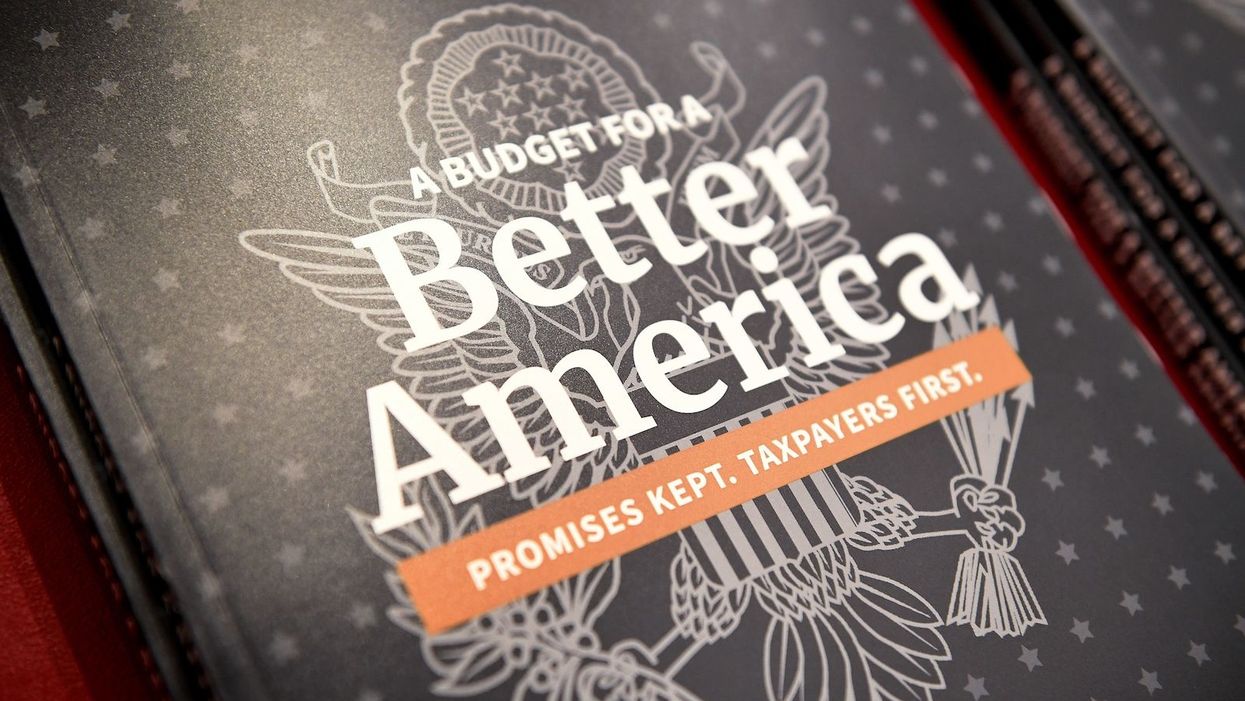
© 2026 Blaze Media LLC. All rights reserved.
CBO says President Trump’s budget would rack up substantial debt — but would do it more slowly than current law
May 09, 2019
Still in the red
The nonpartisan Congressional Budget Office scored President Donald Trump's most recent budget proposal and found that, while it still would add trillions to the national debt, it still would spend less over time than current spending levels.
The CBO's analysis published Thursday of the president's 2020 budget request found that the proposed spending plan's total deficits for the next decade would total $9.9 trillion, which is actually $1.5 trillion less than what the agency predicted for the spending outlined by current law.
That figure, however, is a couple of trillion higher than the administration's own reckoning, which estimated that the proposed spending plan would see a total deficit of $7.3 trillion over 10 years. The CBO attributed the difference to "differing estimates of revenues" over the next decade, meaning that the administration is banking on a less-taxed, less-regulated economy generating more government revenues to offset federal spending.
While a useful tool for legislators and the public to get a sense of how much particular policies would cost, CBO projections aren't fiscal crystal balls. For example, a 2019 report compiled by actuaries for the Centers for Medicare and Medicaid Services pointed out just how badly the agency grossly miscalculated the effects of Obamacare's individual mandate.
The CBO report also figured that the president's budget would cut down federal health care spending, mainly because of a provision that would repeal portions of Obamacare to be replaced with block grants to the states.
The Trump administration rolled out the details of its massive, $4.7 trillion fiscal year 2020 budget proposal to the public in March and later formally submitted the request to Congress. The proposal was simultaneously criticized for adding too much to the national debt and spending too little on various domestic programs.
In a March interview with BlazeTV's "Capitol Hill Brief," House Republican Study Committee Chairman Mike Johnson (La.) called the budget proposal's modest savings "a good start" but not sufficient to adequately address America's debt crisis.
Want to leave a tip?
We answer to you. Help keep our content free of advertisers and big tech censorship by leaving a tip today.
Want to join the conversation?
Already a subscriber?
more stories
Sign up for the Blaze newsletter
By signing up, you agree to our Privacy Policy and Terms of Use, and agree to receive content that may sometimes include advertisements. You may opt out at any time.
Related Content
© 2026 Blaze Media LLC. All rights reserved.
Get the stories that matter most delivered directly to your inbox.
By signing up, you agree to our Privacy Policy and Terms of Use, and agree to receive content that may sometimes include advertisements. You may opt out at any time.






